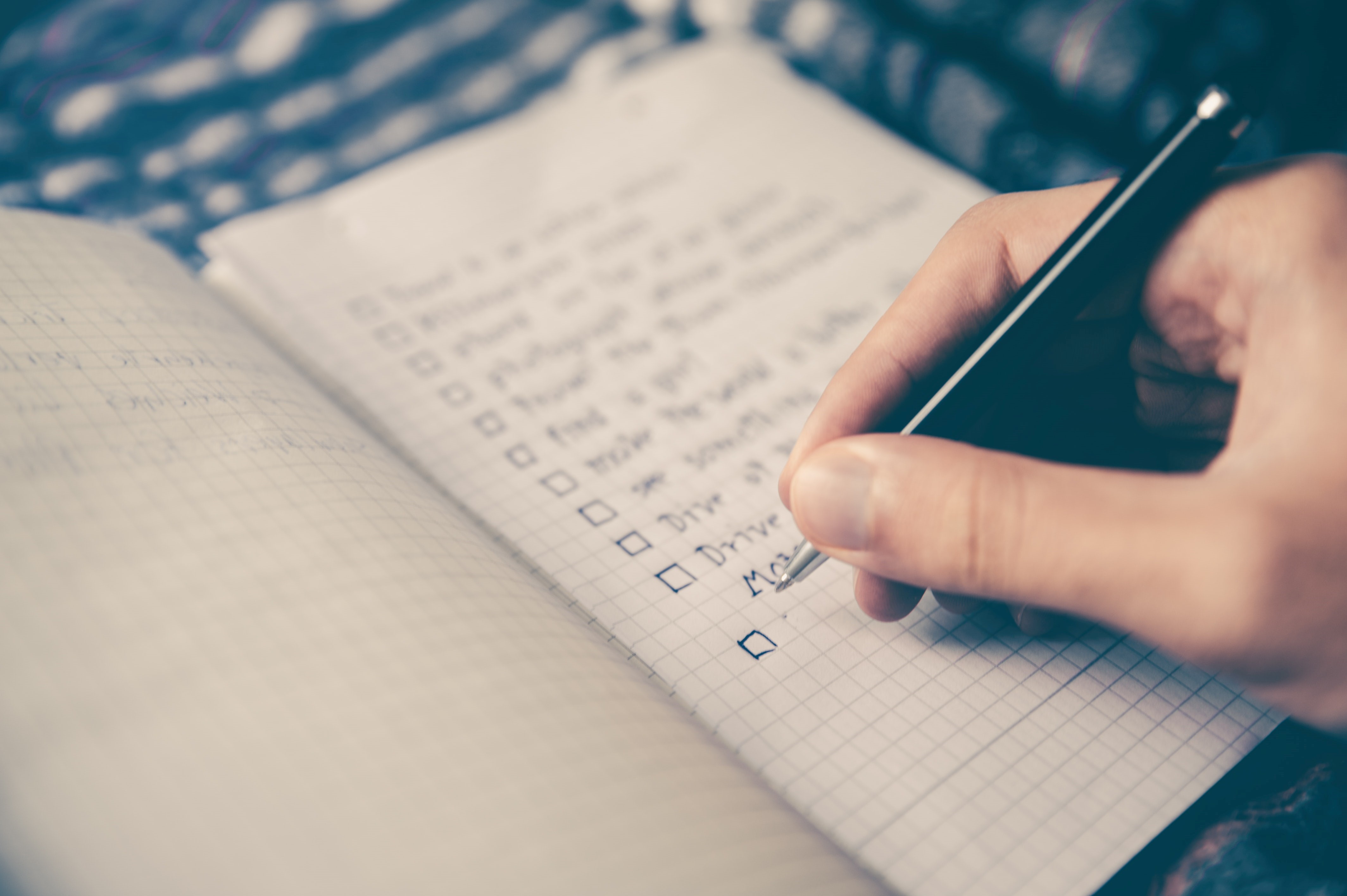According to Plan

Sounds Like a Plan
There’s no way to predict what life will throw at you. Unexpected stressors are bound to come your way, knock you for a loop, and allow stress and anxiety to creep in. You could find yourself with a sudden health problem. Maybe the perfect job opportunity means you’re moving to a new city. A new relationship may lead to a new marital status or even children. You could buy a home that turns out to be a lemon. Worse still, you could end up with a disability that prevents you from working and providing a living for yourself or your family.
It’s stressful even reading this list! It’s likely that some of these big changes will be in your future, but you don’t always know when they will pop up. This uncertainty is unsettling and adds to the stress surrounding the future, especially when there are no plans in place. So let’s talk about planning and the ways that a little preparation can significantly reduce stress.
“Those who fail to plan, plan to fail.”
Get a Game Plan
Some argue that one of the biggest stress relievers is simply the act of planning (i.e., fighting stress before it happens). Before we look at how this reduces stress, let’s figure out what a good plan looks like. How do you describe a good plan? There are plenty of tools out there that can teach you how to set goals, and write a to-do list. But the kind of planning that helps rid you of stress involves some imagination. Try visualizing the event happening and see what might come to mind as specific problems. While you’re playing through the situation in your head, what sorts of things stress you out the most? Do your worries have to do with health, safety, financial obligations, knowledge, weather, loved ones, security, etc.? Once you identify the circumstances that cause you stress in those situations, try to come up with realistic solutions that will relieve the stress surrounding each one.
Let’s look at the example of an athlete heading into a competition. We’ll assume that the athlete has trained diligently, honed skills and been disciplined about getting their body ready for the race. These are obvious and fairly common-sense methods of reducing the stress of game time. But the athletes who do not buckle under pressure, the ones who keep their heads in the game and aren’t easily shaken, are the ones who have taken the time to visualize the path to victory. The crowd that day could be unusually inclined to heckle. The weather may not cooperate and create less than ideal conditions. An unexpected friend or relative shows up and rattles your nerves just by being there. These things are out of your control. However, the athlete who visualizes these stressors can prepare to be less reactionary when the stress comes. Ask yourself, “How would I feel if this happened?” and “how can I remain calm in that case?”
This may seem like mere daydreaming, but this is actually called proactive coping. It is different from thinking of all the worst case scenarios and “what ifs” and getting yourself worked into nervous ball of energy. It takes effort and discipline, because you are planning for the future, in the now. Why wait until your pulse is racing and your mind is full of cognitive clutter?! Take some time, while your head is clear and your body is calm, to put yourself in a future stressful situation and get a plan to prepare your future-self. You’ll thank yourself later!
Plan for the Worst Best
We all know that what we say to ourselves matters tremendously. It can affect our whole outlook on life, as well as how we handle stressful situations. So let’s not be pessimists who excel at negative self-talk. Planning ahead to reduce stress is NOT thinking of the worst possible thing that can happen and how to soften the blow. Instead, think of it as taking control of your life, being wise and responsible so that you can set yourself up for victory, instead of disappointment and regret. Now that you know what a good plan is and how to come up with one, here are some situations you may want to consider while you’re proactively coping:
- Wedding
- New Home
- New Car
- Relocating
- Health problems or Disability*
- Travel
- Pregnancy
- Savings: home repair, car repair, retirement
- Emergency fund: health problems, house repairs, travel to see a sick relative
- Education: paying back student loans, future certifications, children’s college funds
The Best Laid Plans
Once you have your plan for the stressful event, you can implement your preferred method of goal setting. Whichever school of thought you subscribe to, SMART goals, HARD goals, BHAG goals, Locke and Latham principles, Franklin Covey planners… Make sure to break each plan down into smaller measurable steps that do not add to the stress. For example, looking at “plan wedding” on your to-do list is intimidating and involves too many steps to be completed in one task. This will only add to the stress you feel and will negate the proactive coping and planning that you did to get to that point. So be smart (or HARD or BHAG)! Even with a plan in place, life is still unpredictable. Having a plan is not supposed to be the ultimate answer to all problems, but it will allow you to be less reactive to stress and better your chances of rising to any challenge.
*If one of your stressful situations is wondering if you and your family will be okay if you became disabled and couldn’t work, that’s our area of expertise! Please contact us to find out more so we can help you “proactively cope” with that scenario. Let us help you check that off your list to give you peace of mind.
**Additional Resources
Manage Stress - MyHealthfinder | health.gov
Mental Preparation: Reduce Pre-Game Anxiety and Stress - inCourage
Why making plans helps manage pandemic stress - BBC Worklife
Planning Is Prevention: More Planning Means Less Stress — and a Big Boost in Happiness | TIME.com

